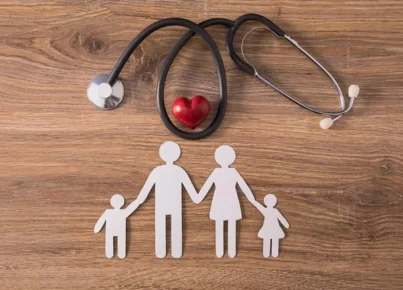The healthcare sector is fiercely competitive and rapidly evolving, necessitating that professionals continually enhance their qualifications. Securing a role in healthcare requires more than education; it demands practical experience, soft skills, and an understanding of industry trends.
By strategically enhancing qualifications, you can position yourself as a top candidate, ready to tackle challenges and seize healthcare opportunities. In this article, we guide you through the essential steps to upgrade yourself and make your journey smooth in the healthcare sector.
Assessing Your Current Qualifications
Evaluating your current qualifications is essential before pursuing additional education or certifications. By assessing your skills, experiences, and educational background, you can identify gaps that may impede your career progression in healthcare. This self-assessment helps you develop a targeted plan to improve areas crucial for competitiveness and alignment with industry demands.
Pursuing Relevant Education and Certifications
Staying competitive in healthcare necessitates pursuing relevant education and certifications. Begin by identifying accredited programs and courses that align with your career goals, focusing on those offering the latest knowledge and skills. Advancing your qualifications through formal degrees, specialized certifications, or continuous education showcases your dedication to excellence. This strategy solidifies your reputation as a knowledgeable and capable healthcare professional.
Online ABSN programs offer a fast-track pathway for individuals transitioning into nursing. Designed for those with a non-nursing bachelor’s degree, these programs allow completion of nursing education in a shortened time frame. Online ABSN programs blend virtual coursework with hands-on clinical training, providing flexibility while upholding rigorous academic standards crucial for nursing success.
Holy Family University emphasizes that the nursing process forms the foundation for clinical reasoning. The program cultivates essential skills to assess, plan, implement, and evaluate selected nursing interventions and technologies. It also ensures students are well-prepared for diverse healthcare environments.
How can I find accredited educational programs or courses relevant to my career goals?
To find accredited programs, start by researching reputable institutions and verifying their accreditation status through official websites or accreditation bodies. Utilize resources like the US Department of Education’s database or equivalent in your country. Professional associations often list recommended programs. Online reviews, alumni feedback, and industry reputation provide valuable insights when choosing the right educational path.
Gaining Practical Experience
NurseJournal states gaining practical experience is crucial, with clinical hours varying by program level. BSN students typically require up to 700 hours, while MSN students need up to 1,300 hours. This increased requirement links extensive practical experience with enhanced career opportunities, reflecting the advanced clinical skills needed for higher-level roles.
Acquiring practical experience is crucial for translating theoretical knowledge into real-world healthcare settings. Internships, volunteer positions, or part-time jobs offer hands-on experience, enabling you to develop vital skills and strengthen your resume. Gaining technical competencies and understanding daily healthcare challenges helps you become a well-rounded, prepared candidate for various roles in healthcare.
How can I use volunteer work or part-time jobs to boost my resume for healthcare roles?
Part-time jobs or volunteer work in the healthcare industry provide real-world experience that highlights your abilities and dedication. Put these experiences on your resume by emphasizing the particular activities and results that best represent your skills. Emphasize your involvement in patient care, teamwork, and relevant training. These roles also provide networking opportunities that can lead to future career prospects.
Developing Key Soft Skills
Elsevier states soft skills in nursing and healthcare, such as communication and empathy, are as crucial as hard skills. While hard skills are teachable and measurable, soft skills significantly impact patient care and team dynamics. Developing essential skills improves patient satisfaction and team efficiency, which is crucial for achieving positive clinical outcomes and fostering a supportive work environment.
In healthcare, technical expertise must be paired with strong soft skills. Effective communication, empathy, teamwork, and adaptability are vital for providing quality patient care and collaborating with diverse teams. Cultivating these skills through practice, feedback, and training enhances your appeal as a candidate. It also equips you to thrive in the complex, high-pressure environments typical of the healthcare industry.
How can I enhance my ability to solve problems and think critically within a healthcare setting?
To enhance problem-solving and critical thinking in healthcare, a focus on continuous learning, reflection, and collaboration is suggested by Nursing World. Engage in educational courses to stay current, and regularly reflect on your clinical decisions to identify areas for improvement. Utilize critical-thinking tools, seek diverse perspectives, and challenge assumptions to refine your problem-solving abilities, ensuring optimal patient care and effective decision-making.
Staying Updated with Industry Trends
Keeping abreast of changing healthcare laws, procedures, and technologies is essential to preserving your competitive advantage in the market. To keep informed, read trade journals, go to conferences, and take part in online discussion boards. Keeping up with the latest advancements expands your knowledge and shows that you are dedicated to lifelong learning and career advancement.
Wiley states that healthcare professionals surveyed from 77 countries access medical information frequently, with 72% seeking updates daily or weekly. The rise of virtual events and mobile-friendly content has become crucial for ongoing education and real-time information sharing. Despite the convenience of virtual formats, the shift highlights ongoing challenges in balancing information overload and maintaining effective in-person interactions.
Building a Strong Professional Network
Networking with peers, mentors, and industry leaders can lead to new opportunities, provide insights into trends, and offer support throughout your career. Attend industry events, join professional organizations, and participate in online communities to connect with individuals who can help advance your healthcare career.
The American Association of Aesthetic Medicine states building a strong professional network facilitates knowledge sharing and career advancement. Networking enhances patient care through multidisciplinary collaboration and supports career growth by connecting with mentors and job opportunities. It also fosters innovation by engaging with thought leaders and staying updated with industry trends. This interconnected network promotes overall well-being and professional development.
Considering Specializations and Subfields
Focusing on a specialization or exploring subfields within healthcare can significantly enhance your career prospects. You distinguish yourself from generalists by honing your expertise in a specific area. Selecting a specialization in pediatrics, geriatrics, or healthcare management aligns your qualifications with specific industry needs, making you a more attractive candidate.
Standing Out in the Competitive Healthcare Field
In the competitive healthcare field, strategically enhancing your qualifications is key to standing out. You establish yourself as a leading candidate by assessing your strengths, pursuing relevant education, gaining practical experience, and developing essential skills.
Staying informed on industry trends, building a strong professional network, and exploring specializations enhance your competitiveness, preparing you to excel in healthcare.





